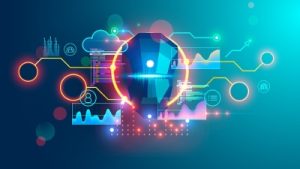
Higher education is at an interesting inflection point. While there has been much talk about the increasing cost for students, educational institutions are not necessarily reaping the benefits of these higher prices. Colleges and universities are seeing enrollment numbers decrease due to affordability concerns and a general decline in population. Additionally, the rise of the gig economy and online degree options, as well as the willingness of employers to hire and train people without college degrees for in-demand jobs in cybersecurity and artificial intelligence (AI), are all impacting the perceived necessity of advanced education.
Show Me the Data
While AI careers may no longer require a four-year degree, AI technology is proving to be invaluable in supporting the growth and success of higher education institutions. With all of the outside pressures, colleges and universities need to take a serious look at all the data they hold to determine the cost and ROI of the programs they offer, from degree options to sports teams to housing options. Information about student demographics, student performance, program revenues, and operational costs are all held in siloed systems. AI can help collate all of these disparate data sets, making connections that would take teams of humans months or years to discover.
Let Academics be Academics
The ability of AI tools to digitize manual tasks frees up faculty from rote reporting work, allowing them to devote more time to teaching and research. One survey found that employees lose around 4.5 hours a week on routine, mundane work that could be automated. Employees seem to be ready to embrace AI change. A study found that 79% of higher education finance decision-makers believe AI will increase productivity by increasing efficiency and improving accuracy in business processes. AI can automate routine tasks and process vast amounts of data, allowing for the faster identification of patterns and anomalous data points that allow institutions to make informed financial decisions.
Leveling the Admittance Playing Field
Utilizing AI in admissions allows institutions to correlate many data points. With the Supreme Court decision removing affirmative action and legacy from admission decision-making, the process is up for a complete overhaul. AI can evaluate applicants using multiple unique criteria beyond test scores and GPAs. It can also avoid human biases that lead to less diverse student bodies. Schools can utilize nonlinear models to find and recognize students who otherwise might get overlooked.
Predicting the Future
AI also allows institutions to model the impact of changes. Teams can try out changes by modeling a new business structure or removing the costs associated with a piece of the capital improvement plan to get an immediate look at the impacts. Predictive analytics can quickly answer questions like, "Do I need to build another dorm? Should we keep the football program? Am I maximizing my revenue on food?"
To learn more about how AI is impacting education, check out these resources from GovEvents and GovWhitePapers.
- EDUCAUSE Annual Conference 2024 (October 21-24, 2024; San Antonio, TX) - Education professionals and technology providers from around the world gather to network, share ideas, grow professionally, and discover solutions to today's challenges.
- Introduction to Generative AI for Business Leaders (November 6, 2024; virtual) - This training is designed for business leaders and decision-makers within organizations who are seeking to gain a comprehensive understanding of GenAI and its potential impact on their businesses.
- Washington Higher Education IT Leadership Summit 2024 (November 13, 2024; Tacoma, WA) - This Center for Digital Education is designed for those working to grow their technology leadership careers. It will explore how to lead with the right influence, communications/collaboration strategies, utilizing emerging technology, and more.
- Designing for Education with Artificial Intelligence: An Essential Guide for Developers (white paper) - Today and in the future, a growing array of Artificial Intelligence (AI) models and capabilities will be incorporated into the products that specifically serve educational settings. The U.S. Department of Education is committed to encouraging innovative advances in educational technology (edtech) to improve teaching and learning across the nation's education systems and to supporting developers as they create products and services using AI for the educational market.
- Innovation in Education: The Dark and Light Side of Artificial Intelligence (white paper) - Artificial Intelligence (AI) enhances not only the strength and effectiveness of cyber attackers today but also the tools and methods used to defend against those attacks. As AI's potential for good and bad rapidly evolves, higher education weighs AI's risks and benefits while reshaping and prioritizing cybersecurity strategies to mitigate today's threats.
Explore more ways AI is being used in education with additional events and resources on GovEvents and GovWhitePapers.




